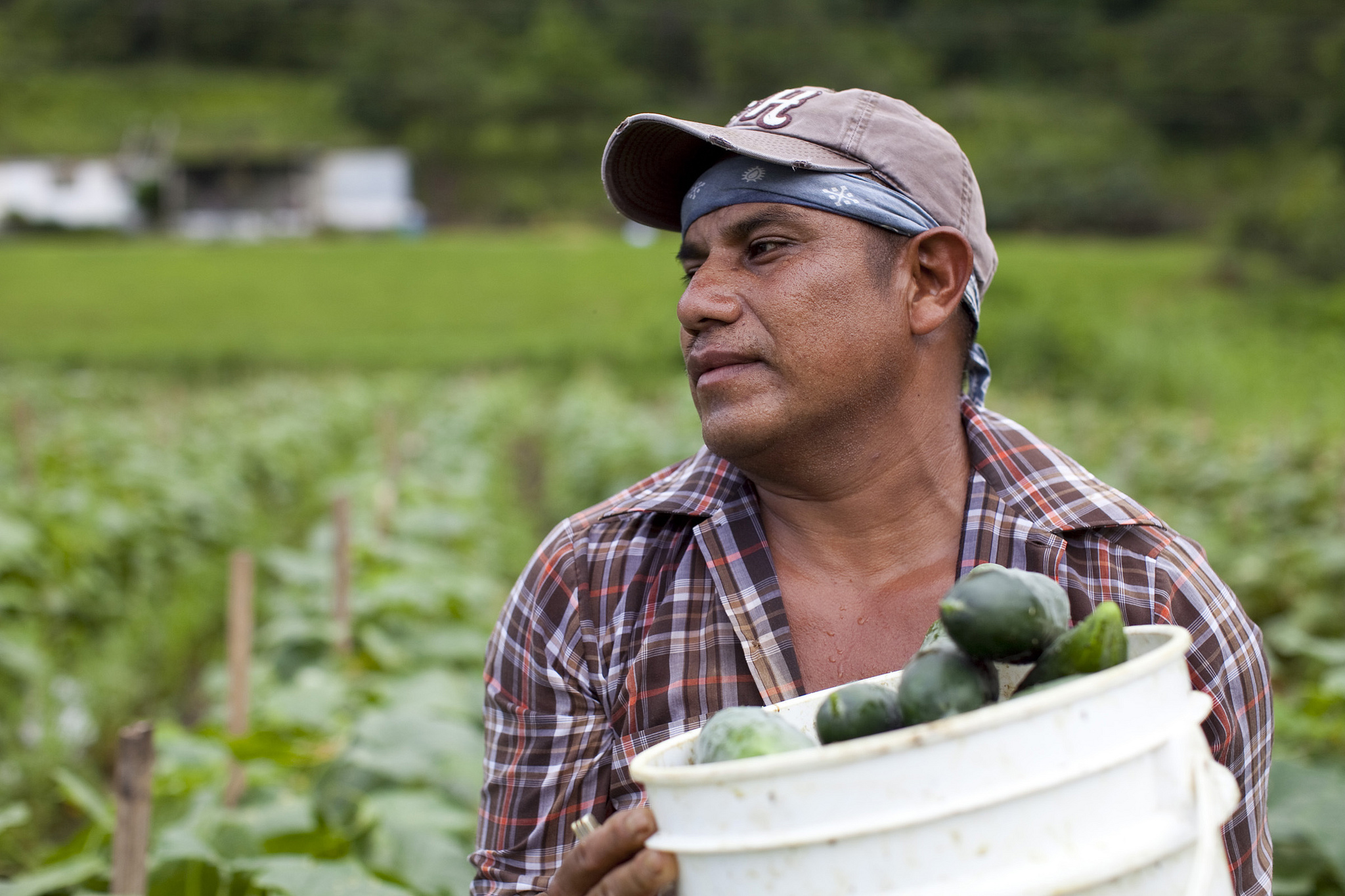Due to its geographic diversity and natural resource abundance, the United States is one of the world’s leading agricultural producers and suppliers. Indeed, the $374 billion U.S. agriculture sector is critical to the U.S. economy, but its health depends on a functioning immigration system. From migrant workers on farms, to foreign-born scientists at agribusiness and agricultural research centers, immigrant labor is important for U.S. agriculture, and analysts predict that in the absence of immigration reform, the growth of the entire sector may stall.
At an event Tuesday on immigration, agriculture, and the economy, panelists described how the status quo is harmful to employers, workers, the broader economy, and food security. Stephanie Mercier, with the Farm Journal Foundation, and author of Employing Agriculture: How the Midwest Farm Sector Relies on Immigrant Labor, observed that between 2000 and 2012, “U.S. consumption of fresh produce rose by 10.5 percent, while U.S. production rose only 1.4 percent. As a result, imports of fresh fruits and vegetables have increased by 38 percent over that period, with imports in several categories spiking well over 100 percent.” And citing a previous study, she notes that labor supply challenges and H-2A visa shortcomings are key factors in a 27 percent decline in market share for U.S. growers, accounting for $3.3 billion in missed GDP growth and $1.4 billion in unrealized farm income for 2012.
Another panelist, Craig Regelbrugge, with AmericanHort, observed on AgriTalk radio that immigrants working in the agriculture sector are helping to create jobs for U.S. workers by enabling us to produce in the United States:
“And when we produce here we are generating thousands upon thousands of jobs that are not on the farm necessarily. They’re related to inputs that the farmer must buy in order to produce. They’re related to things that must happen after the crop or product leaves the farm. The multiplier effect for each farmworker is said to be somewhere between 2 and 3 jobs that are created here…If we become reliant on Canada, Mexico, Central America, and…China to feed us, most of the jobs that exist here in agriculture will go offshore to support us.”
Describing the perspective of farmworkers, Adrienne DerVartanian, with Farmworker Justice, noted that “when you have a majority undocumented workforce, you have a workforce that’s fearful of defending their workplace rights, of seeking improved wages and working conditions.” She explained that farmworkers should be presented with an opportunity to have lawful permanent residency and a path to citizenship, which would stabilize the agricultural labor force and result in higher wages and better working conditions. Employers would benefit through higher retention rates and improved productivity, subsequently benefitting our nation through greater food security and food safety.
Panelists agreed that the future of agriculture in this country and the ability to feed ourselves is very much connected with immigration. “Clearly, U.S. agriculture in the Midwest and elsewhere in the country really needs significant reforms to how the current U.S. immigration system works,” Mercier said. “The current stalemate is very frustrating to a lot of farmers because it’s forcing them to rethink how they operate their farms, what kind of crops they plant, in a way that’s very limiting to their ability to run a good business.” Regelbrugge explained the adverse effect of delaying immigration reform:
“The do-nothing strategy is a net loser because the reality is new folks aren’t coming in, and there is over time going to be attrition of the existing workforce…It doesn’t take a nuclear physicist or rocket scientist to figure out how to solve agriculture’s problem.”
Foreign-born workers are crucial to agriculture in the United States. By instituting meaningful reforms to meet current and future needs, while protecting workers and their families, we can ensure more of the food we eat is produced here.
Photo Courtesy of Bread for the World.
FILED UNDER: Business, Economics, Farmworkers, featured, undocumented immigration


